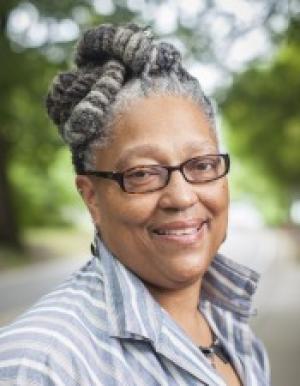Resources

I finally went to my primary care doctor the other day and proceeded to unload about three years’ worth of pent-up ailments upon her. I'm losing my hearing! Do I have early-onset dementia? My right knee hurts! Can you test my thyroid? I think I have diabetes! What is this weird bump? My pinky is numb! Is my heart rate normal? Am I a hypochondriac?! This poor woman.I’m pretty sure she diagnosed me with a very serious condition called… “aging.”I’m turning forty this year and suddenly, it seems, I find myself routinely waking up at four a.m., taking a handful of vitamins with breakfast, and grumbling about “kids these days.” The skin on the back of my hands has turned to crepe paper. The other weekend I didn’t go watch a friend’s band play because the show started WAY too late. Readers, it started at nine p.m. I fear it can no longer be denied: I’m getting older.It’s not that I don’t spend time thinking about bodies, including my own. I’ve read books such as Minding Bodies: How Physical Space, Sensation, and Movement Affect Learning (Hrach, 2021). I teach courses on disability and race—two classes in which the body comes up a lot. I emphasize to students that religion isn’t just about beliefs; it’s enacted and embodied amidst a material world too. I know I need a snack in the middle of my Mon/Wed 9:35-10:50 a.m. class or my stomach will let out a series of plaintive whale songs. I’ve dealt with decades-long injuries. I’ve suffered from long COVID. People I love have died. But, oddly, I haven’t thought all that much about aging, or its relationship to my work, until more recently.Part of this odd oversight may be that aging is pretty embarrassing sometimes. Kids can literally fall out of a tree, get up, and walk away just fine; I can pull my back, and need to take it easy for a week, because I reached too far trying to plug in a lamp. This isn’t exactly the kind of story I want to broadcast at the monthly department meeting. Part of it may be that it’s hard to admit, perhaps even to fathom, just how much our lives are affected by this “meat suit” (as my yoga teacher calls it) that is only ours temporarily. Part of it may be that professors tend to work late into life—and so aging doesn’t seem all that relevant to my professional world. Part of it may also be that, because faculty are constantly encountering a turnstile of younger people in our classes, it may be easy to forget we ourselves aren’t forever young. I still feel only a few years older than my students (especially whenever I can sense the presence of free pizza nearby). Part of it too may be that we fancy ourselves living “the life of the mind”—even if it’s a big lie or hell, for a lot of us—and the mind can seem ageless (though the other day I stood in front of my bathroom sink and couldn’t remember which handle was for hot, so….). Part of it is denial, I’m sure.Aging brings up a bunch of considerations—and not just about the indignities and rebellions of a body I can no longer (could not ever?) control. How do I continue to do this work well when my mind is no longer as sharp as it once was? (And what does “well” even mean? Perhaps such notions change over time….) What do I have to offer to my colleagues and students, now that I am no longer fresh out of school? How do I make my own meaning, when the milestones and achievements of the earlier years (e.g., get a degree, get a job) have passed? How can I stay relevant in a rapidly changing world, around those same youths I mentioned above? How can I remember where I put my glasses?!? What are my new goals, what am I aiming toward, where is the forward momentum coming from now? How do I tap into the wisdom of mentors and others who have been through this time and these transitions before me? How do I learn to live with the losses, both personal and professional, that accumulate? How do I stay excited about doing the same thing, for semesters on end? Are there really ways to beat or stave off mid-career malaise or the midlife blues? How do I do *gestures around* all of this for another several decades? These are tough questions to contemplate and I don’t have the answers yet. I’m not sure I ever will.Some of you are probably chuckling to yourselves. What I wouldn’t give to be 40 again, you might be thinking. Yet difficult wonderings can come for us at any age or stage in our career. I’m remembering a quotation my mom, who has since passed away, sent to me once: “Sometimes when you’re in a dark place, you think you have been buried. But you’ve actually been planted.” Now, maybe, is a time to grow.

I have been learning over the last several months that transition is not the same thing as change. Change is something I live with every day as I battle the side effects of diabetes—not ever knowing if my feet will betray me or my hands remain cold all day. Change is a part of my life and living as I see new things from the folks I work with everyday, but then there is a quirk of phrase, the sidelong look, the slight roll of the eye that I had not seen before. Change is something I am trying to make my peace with as I age and get closer to the ages that my parents died, and worry, what this will mean for my spouse and my only sibling, my sister, who is managing mental illness in magnificent ways. Who will be their confidante? Who will be their big sister? As I prepare to leave the deanship at Vanderbilt Divinity School, I am very aware that this transition thing is a whole ‘nother thing altogether. Because it means that I can’t just react to my disease and try to stay on top of it. I can’t just acknowledge that there are some physical acts that I used to do with ease and now, if I can do them at all, they do not come easily or look slightly askew. Transition means that I am leaving something I’ve done and loved but realize that it is time to move on. It is bitter and it is sweet. And there are large parts of the future that I do not know about but have a dim awareness that they are out there. There is only so much I can know about what the full textures of this transition will be. So, I make to-do lists in my head, in print, and then talk about them with the folks in my life and I say over and over again that I am looking forward to what this transition will mean. But I suspect that a part of me is really only doing this as a profound exercise in hope. Because I do like control and order and there is simply the unknown until I walk into this transition each day, hoping that it will be alright and that I do lead well until I no longer carry the marvelous responsibility of my school in ways that only the dean can. And what little I am sure of is that I am looking forward to full-time classroom teaching after a long sabbatical but it will be like learning to ride that bike again. Only this time it’s electric.